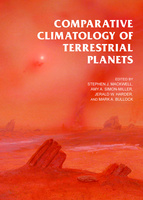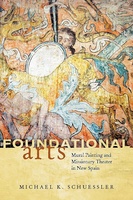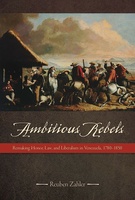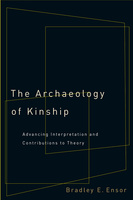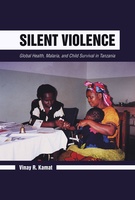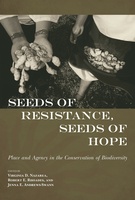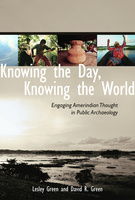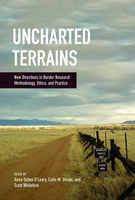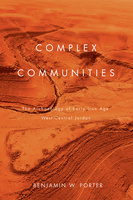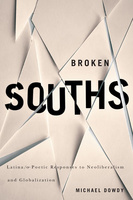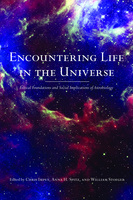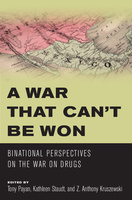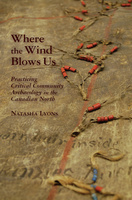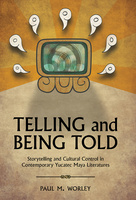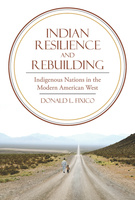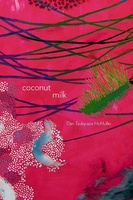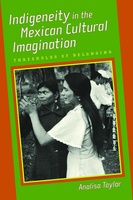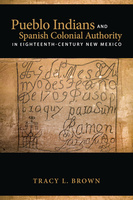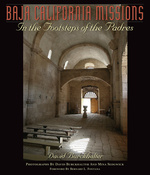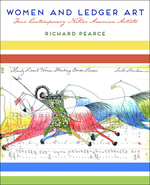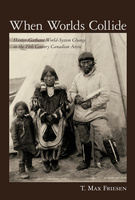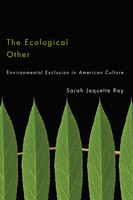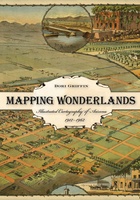The University of Arizona Press is the premier publisher of academic, regional, and literary works in the state of Arizona. They disseminate ideas and knowledge of lasting value that enrich understanding, inspire curiosity, and enlighten readers. They advance the University of Arizona’s mission by connecting scholarship and creative expression to readers worldwide.
Comparative Climatology of Terrestrial Planets
Foundational Arts
Mural Painting and Missionary Theater in New Spain
Ambitious Rebels
Remaking Honor, Law, and Liberalism in Venezuela, 1780-1850
The Archaeology of Kinship
Advancing Interpretation and Contributions to Theory
Silent Violence
Global Health, Malaria, and Child Survival in Tanzania
Seeds of Resistance, Seeds of Hope
Place and Agency in the Conservation of Biodiversity
Knowing the Day, Knowing the World
Engaging Amerindian Thought in Public Archaeology
Uncharted Terrains
New Directions in Border Research Methodology, Ethics, and Practice
Complex Communities
The Archaeology of Early Iron Age West-Central Jordan
Broken Souths
Latina/o Poetic Responses to Neoliberalism and Globalization
Encountering Life in the Universe
Ethical Foundations and Social Implications of Astrobiology
Brewing Arizona
A Century of Beer in the Grand Canyon State
A War that Can’t Be Won
Binational Perspectives on the War on Drugs
Where the Wind Blows Us
Practicing Critical Community Archaeology in the Canadian North
Telling and Being Told
Storytelling and Cultural Control in Contemporary Yucatec Maya Literatures
Milk and Filth
Indian Resilience and Rebuilding
Indigenous Nations in the Modern American West
Oral History, Community, and Work in the American West
More Than Two to Tango
Argentine Tango Immigrants in New York City
Coconut Milk
Indigeneity in the Mexican Cultural Imagination
Thresholds of Belonging
Pueblo Indians and Spanish Colonial Authority in Eighteenth-Century New Mexico
Mexico, Nation in Transit
Contemporary Representations of Mexican Migration to the United States
Baja California Missions
In the Footsteps of the Padres
Women and Ledger Art
Four Contemporary Native American Artists
Although ledger art has long been considered a male art form, Women and Ledger Art calls attention to the extraordinary achievements of four contemporary female Native artists—Sharron Ahtone Harjo (Kiowa), Colleen Cutschall (Oglala Lakota), Linda Haukaas (Sicangu Lakota), and Dolores Purdy Corcoran (Caddo). The book examines these women’s interpretations of their artwork and their thoughts on tribal history and contemporary life.
Communities of Practice
An Alaskan Native Model for Language Teaching and Learning
The Affinity of the Eye
Writing Nikkei in Peru
López-Calvo uses contemporary Nikkei texts such as fiction, testimonies, and poetry to construct an account of the cultural formation of Japanese migrant communities, and in so doing challenges fixed notions of Japanese Peruvian identity.
When Worlds Collide
Hunter-Gatherer World-System Change in the 19th Century Canadian Arctic
The Inuvialuit region is the most under-reported and least-known portion of the North American Arctic, beyond its immediate community of anthropological/archaeological practitioners, and this book helps address that lacuna.
The Ecological Other
Environmental Exclusion in American Culture
This book engages recent scholarship on trans-corporeality, disability studies, and environmental justice. Ray argues that environmental discourse often frames ecological crisis as a crisis of the body, therefore promoting ecological health at the cost of social equality. Ray urges us to be careful about the ways in which we construct “others” in our arguments to protect nature.


